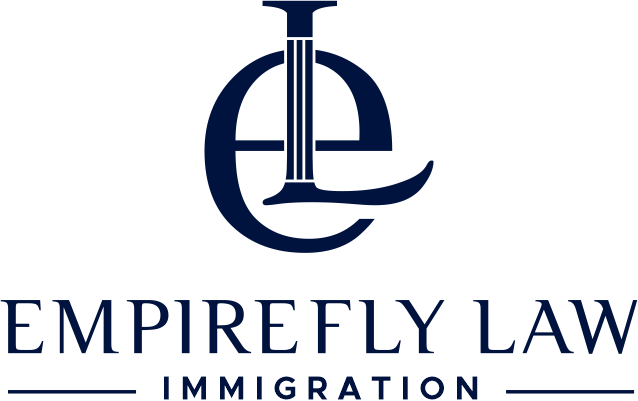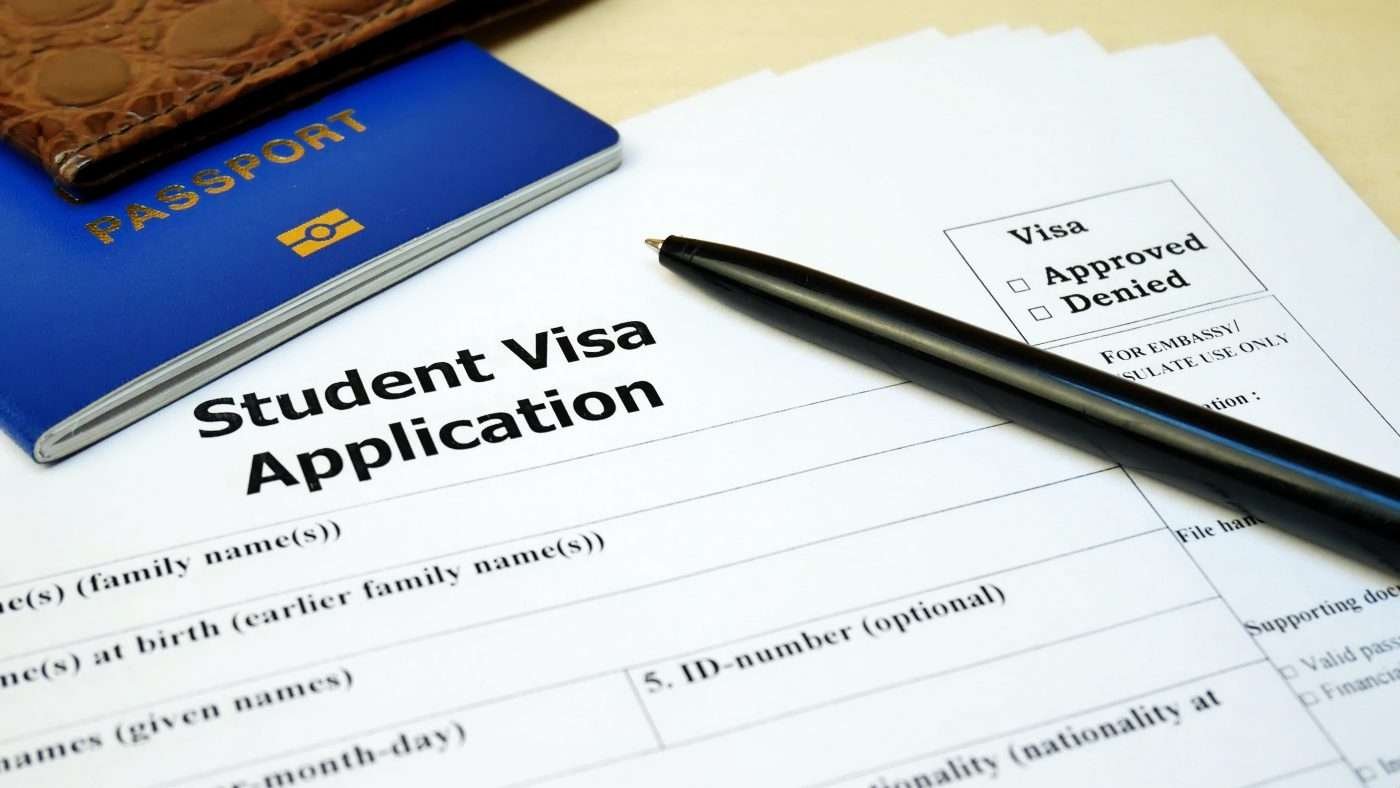The Student visa is a crucial pathway for African students and professionals seeking quality education and career opportunities in the United States. This article discusses eligibility criteria, application procedures, updates to the F-1 visa, and essential tips tailored to African migrants.
Table of Contents
-
Benefits of the Student Visa for African Students and Professionals
-
Timelines and Processing: Understanding Student Visa Processing Times
Introduction to Student Visa
The Student visa is designed for individuals who wish to study in the United States. Specifically, the F-1 visa is the most common category for full-time students enrolled in academic programs, language training programs, or vocational studies. For African students and professionals, the Student visa offers an opportunity to access world-class education, gain international exposure, and develop skills that are in high demand globally.
The Student visa process is managed by the U.S. Department of State, in coordination with the U.S. Citizenship and Immigration Services (USCIS). With recent updates to the F-1 visa program, it is more important than ever for applicants to stay informed about changes that could impact their eligibility, application procedures, and overall timelines.
F-1 Visa Update: What African Students Need to Know
Recent updates to the F-1 visa, a type of Student visa, have introduced new requirements and streamlined processes intended to make it easier for African students to apply. These updates address concerns such as processing delays, documentation standards, and interview procedures.
Key Updates in the F-1 Visa Process
-
Enhanced Document Verification: U.S. authorities have implemented improved verification systems to ensure the authenticity of academic credentials and financial documents.
-
Digital Interview Options: In some cases, African applicants may now have the option to complete visa interviews via video conferencing, reducing the need for travel to U.S. consulates.
-
Extended Validity of I-20 Forms: Some institutions have received temporary extensions for the issuance of Form I-20, which is critical for your Student visa application.
-
Fee Adjustments and Payment Flexibility: New policies allow more flexible payment options for visa fees, catering to international applicants facing currency fluctuations.
For the latest details on the F-1 visa update, check the U.S. Department of State Student Visa page.
Benefits of the Student Visa
The Student visa is not only a gateway to academic success but also a stepping stone for professional growth. Here are some key benefits:
Access to World-Class Education
African students who obtain a Student visa can enroll in prestigious U.S. universities and colleges. This access to quality education opens doors to advanced research, innovative learning environments, and global networking opportunities.
Career Advancement and Networking
For African professionals, studying in the U.S. can provide valuable exposure to leading industries and technologies. This visa enables you to build a network of peers and mentors that can boost your career prospects both in the U.S. and internationally.
Cultural Exchange and Personal Growth
Studying abroad under this visa facilitates cross-cultural exchange, broadens your worldview, and helps develop critical life skills. This cultural enrichment is invaluable in today’s globalized job market.
Post-Graduation Opportunities
After completing your studies, many students can take advantage of Optional Practical Training (OPT), a program that allows you to work in the U.S. for up to 12 months (or longer for STEM graduates) in your field of study. This experience further enhances your resume and increases your competitiveness in the global job market.
Eligibility Criteria
Before applying for a Student visa, it is essential to understand the eligibility criteria. The following points summarize the requirements for obtaining an F-1 visa:
Academic Requirements
-
Admission to a SEVP-Approved Institution: You must have been accepted by a Student and Exchange Visitor Program (SEVP)-approved school. This school will issue you a Form I-20.
-
Proof of Academic Credentials: You need to provide transcripts, diplomas, and standardized test scores that demonstrate your academic qualifications.
Financial Requirements
-
Proof of Financial Support: You must show that you have sufficient funds to cover tuition, living expenses, and other costs during your stay in the U.S. This can be demonstrated through bank statements, scholarship letters, or affidavits of support.
-
Affidavit of Support: In some cases, a sponsor may need to provide an affidavit of support to prove that they can finance your education.
English Proficiency
-
Language Proficiency Tests: If your primary language is not English, you may need to submit scores from tests such as TOEFL or IELTS to prove your proficiency.
Ties to Your Home Country
-
Demonstrating Non-Immigrant Intent: You must prove that you intend to return to your home country upon completion of your studies. This is a critical factor in the adjudication of your Student visa application.
Additional Considerations for African Students and Professionals
-
Cultural and Regional Context: Some U.S. consulates may consider factors such as regional instability or economic conditions in your home country. It is crucial to present a well-documented case that emphasizes your academic and professional goals.
-
Documentation Consistency: Ensure that all your documents are consistent and updated. Any discrepancies could result in delays or denials.
For a complete list of eligibility requirements, visit the USCIS Student Visa page.
Step-by-Step Application Process
Navigating the Student visa application process requires careful planning and organization. The following step-by-step guide is designed to help African students and professionals understand each phase of the process.
Step 1: Obtain Acceptance from an SEVP-Approved School
-
Apply to Schools: Research and apply to SEVP-approved institutions. Once accepted, you will receive a Form I-20.
-
Pay the SEVIS Fee: After receiving the Form I-20, pay the SEVIS I-901 fee. Keep the receipt as proof of payment.
Step 2: Complete the Online Visa Application (DS-160)
-
Access the DS-160 Form: Complete the DS-160, the nonimmigrant visa application form. Make sure to upload a recent photograph that meets the specifications.
-
Print the Confirmation Page: After submission, print the DS-160 confirmation page. This document is essential for your visa interview.
Step 3: Schedule Your Visa Interview
-
Find Your Nearest U.S. Consulate: Schedule your visa interview at the U.S. consulate or embassy in your home country.
-
Prepare Your Documents: Gather all required documents, including your Form I-20, DS-160 confirmation page, passport, financial documents, academic transcripts, and test scores.
-
Pay the Visa Application Fee: Pay the required fee as per the consulate’s guidelines.
Step 4: Attend the Visa Interview
-
Dress Professionally: Present yourself professionally during the interview.
-
Answer Questions Clearly: Be prepared to answer questions about your academic plans, financial situation, and intent to return to your home country.
-
Submit Additional Documents if Required: Sometimes, consular officers may request further documentation to support your application.
Step 5: Visa Issuance and Travel Preparation
-
Visa Approval: If your application is approved, your passport will be returned with the visa stamp.
-
Prepare for Departure: Organize your travel and accommodation in the U.S. and review any pre-departure instructions provided by your institution.
Below is a summary table outlining the key steps in the application process:
| Step | Action | Required Documents/Notes |
|---|---|---|
| 1 | Obtain Acceptance & Form I-20 | SEVP-approved school acceptance, Form I-20 |
| 2 | Complete DS-160 | DS-160 online form, recent photograph, DS-160 confirmation |
| 3 | Schedule Interview & Pay Fees | Visa application fee receipt, consulate appointment confirmation |
| 4 | Attend Visa Interview | Passport, Form I-20, financial documents, academic transcripts, DS-160 |
| 5 | Visa Issuance & Travel Preparation | Passport with visa stamp, travel arrangements, pre-departure instructions |
Following these steps methodically can enhance your chances of a smooth Student visa application process.
Timelines and Processing
USCIS processing times and consular appointment schedules play a critical role in your Student visa journey. Here are some important factors to consider:
Processing Time Estimates
-
DS-160 Processing: The DS-160 form is processed almost immediately after submission, but scheduling an interview might take several weeks depending on your local consulate.
-
Visa Interview Scheduling: Depending on the U.S. consulate’s workload, you may wait anywhere from a few days to several weeks for an interview appointment.
-
Overall Processing: From application submission to visa issuance, the entire process may take 1-3 months. However, delays can occur due to additional document requests or administrative processing.
Example Table: Student Visa Processing Times
| Process Stage | Estimated Time | Notes |
|---|---|---|
| DS-160 Form Submission | Immediate | Online processing; confirmation printed immediately |
| Visa Interview Appointment | 2-4 Weeks | Varies by consulate workload and regional demand |
| Post-Interview Processing | 1-3 Weeks | Includes additional documentation review if required |
| Overall Student Visa Process | 1-3 Months | From DS-160 submission to passport return with visa stamp |
Regularly check the U.S. Department of State Visa Appointment Wait Times for updated information on Student visa processing times.
Common Challenges and Solutions
African students and professionals often encounter specific challenges during the Student visa application process. Here are some common issues along with actionable solutions:
Challenge 1: Document Collection and Verification
-
Issue: Obtaining verified academic records, financial statements, and translations.
-
Solution: Start the document collection process early. Use certified translation services and verify the authenticity of all documents. Create a checklist to ensure all necessary documents are compiled.
Challenge 2: Financial Documentation
-
Issue: Proving sufficient financial support can be complex.
-
Solution: Prepare comprehensive financial documentation, including bank statements, scholarship letters, and affidavits of support. Clearly explain how funds will cover your educational and living expenses.
Challenge 3: Visa Interview Anxiety
-
Issue: The visa interview process can be stressful, especially for first-time applicants.
-
Solution: Practice common interview questions and prepare clear, concise answers regarding your academic and career plans. Consider seeking guidance from mentors or professional advisors who have navigated the Student visa process.
Challenge 4: Delays and Uncertainty
-
Issue: Uncertainty regarding processing times can create anxiety.
-
Solution: Stay informed by regularly checking the Visa Appointment Wait Times and USCIS Processing Times pages. Maintain a proactive approach and communicate promptly if additional documentation is requested.
Addressing these challenges with careful planning and support will help ensure a successful Student visa application.
Key USCIS and Relevant Resources
Staying updated with official government sources is crucial for every Student visa applicant. Below are essential hyperlinks to authoritative resources:
-
USCIS Homepage:
USCIS.gov -
Student Visa Information (U.S. Department of State):
U.S. Student Visa -
SEVIS I-901 Fee Payment:
SEVIS I-901 -
USCIS Forms:
USCIS Forms Page -
Visa Appointment Wait Times:
Visa Appointment Wait Times
These resources provide the latest updates, official forms, and guidelines that are critical to the Student visa process. Make sure to review them carefully as you prepare your application.
Conclusion
With clear insights into F-1 visa updates, eligibility, application procedures, and processing times, you are now better prepared to navigate the complex U.S. immigration system.
For personalized legal advice and expert assistance with your application, contact Empire Fly Law. Let our experienced team guide you on your path to academic and professional success.




